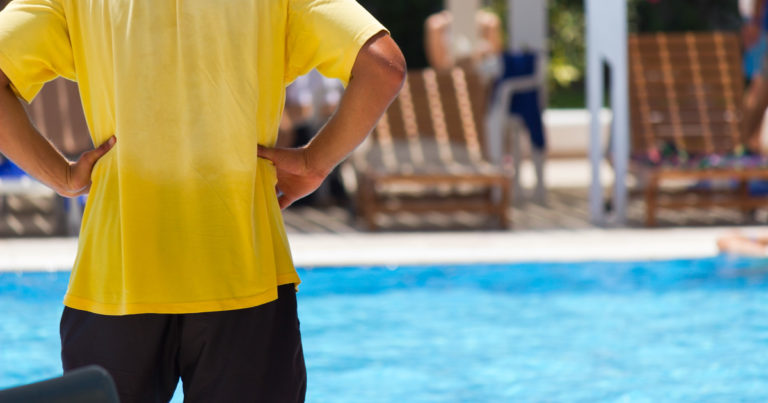Why you should designate 1 responsible person to be a water watcher

If everybody’s in charge of watching kids in the water, that usually means nobody is watching.
By selecting a single, responsible adult to be in charge of supervision, you could prevent drownings and save lives.
Designate a water watcher — at both Scouting and non-Scouting events — whenever you’re in, on or around water.
Why not use the team approach? Same reason that, in an emergency, you don’t say “someone call 911!” You point to a specific person and say, “you, call 911!”
Assigning one person to the task means it’ll get done.
The reminder comes from Water Safety USA, a roundtable of nonprofit and governmental organizations committed to preventing drownings. The BSA is one of 13 founding members of Water Safety USA. Others include the American Red Cross, the National Park Service, the U.S. Coast Guard, the USA Swimming Foundation and the YMCA.
Each year, Water Safety USA selects one simple, vital message to be its focus. For 2017, it’s this: “Designate a water watcher — supervision could save a life.”
What does a water watcher do?
In addition to the obvious — constant, attentive supervision — a water watcher should:
- Emphasize prevention first by encouraging safe activities and stopping any unsafe or risky behaviors.
- Provide “touch supervision” — being close enough to reach the child at all times — for children who are non-swimmers or who lack water competency skills.
- Pay constant attention — undistracted and not involved in any other activity (such as reading, playing cards, talking on the phone or mowing the lawn) while supervising children.
- Ensure that multiple barriers of drowning prevention are in place, including:
- Everyone learning how to swim.
- Fencing to prevent unintended access to pools or bodies of water.
- People on site who know how to rescue someone and initiate CPR.
- Access to a phone to call 911.
Who makes a good water watcher?
Someone who:
- is 16 years old or older (adults preferred).
- is alert and not under the influence of alcohol or drugs.
- has the skills, knowledge, and ability to recognize and rescue someone in distress OR can immediately alert a capable adult nearby.
- knows CPR or can alert someone nearby who knows CPR.
- has a working phone to dial 911.
- has a floating and/or reaching object that can be used in a rescue.
What about lifeguards?
They’re literal lifesavers, but you still need a water watcher even if one or more lifeguards is present.
Drowning can happen — often quickly and quietly — even in the presence of lifeguards.
For more information
Visit Water Safety USA and the BSA Aquatics page.
Why you should designate 1 responsible person to be a water watcher
